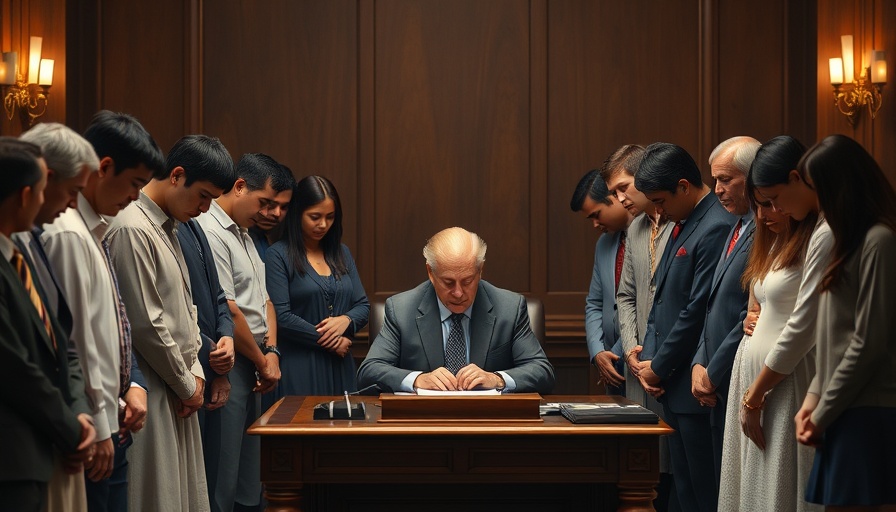
Trump Administration’s IRS Policy Shift: A Game Changer for Churches?
In a significant move that may reshape the landscape of American politics and religion, the Trump administration’s Internal Revenue Service (IRS) has proposed a reinterpretation of the Johnson Amendment. Traditionally, this amendment has prohibited churches and other 501(c)(3) non-profits from endorsing political candidates. Yet, under the new guidelines, churches could soon become pivotal players in the electoral process.
What Does This Mean for Pastors and Pulpits?
For years, many Christian conservatives have argued that the Johnson Amendment infringes upon their free speech rights. Tony Perkins, president of the Family Research Council, expressed jubilation over this bureaucratic change, declaring that churches are “now unshackled.” The IRS aims to treat political endorsements as private matters, likening them to family discussions about candidates. This shift could embolden religious leaders to speak publicly about their political beliefs without fearing for their tax-exempt status.
Potential Consequences: Political and Social Ramifications
While this proposal does not repeal the Johnson Amendment outright, it opens the door for selective enforcement. Political candidates may find themselves courting congregations, potentially transforming houses of worship into campaign venues. This shift could further intertwine religion and politics, altering the American electoral landscape profoundly. Law professor Lloyd Hitoshi Mayer warned, “It also says to all candidates and parties, ‘Hey, time to recruit some churches.’”
Mixed Reactions: Praise and Protest
Reactions to the IRS’s move have been polarized. Allies, like Robert Jeffress, a prominent pastor and Trump supporter, lauded the policy as a victory for religious expression. Conversely, groups advocating for a separation of church and state view this as an alarming encroachment on democratic values. Americans United promptly requested to intervene in the legal proceedings concerning the Johnson Amendment, characterizing the IRS proposal as a “flagrant, self-serving attack on church-state separation.”
The Underlying Historical Context of the Johnson Amendment
The Johnson Amendment was enacted during the civil rights movement, reflecting a desire to prevent tax-exempt organizations from engaging in political campaigns that could bias public policy. This historical context underscores why the amendment has been a contentious issue within American politics. Understanding its original intent can help frame discussions on its relevance today and how its possible reinterpretation could impact vulnerable communities that rely on these nonprofit organizations.
Path Ahead for Churches and Nonprofits
As churches prepare for this new chapter, they must grapple with balancing their spiritual mission and political engagement. While the opportunity to influence local or national elections has advantages, it also invites greater scrutiny and potential backlash. Faith leaders might find themselves at a crossroads, weighing their commitment to their congregations against their newfound influence in the political sphere.
Your Role as a Business Leader in This Evolving Landscape
If you’re a business owner in Texas or elsewhere, this policy shift holds implications not just for churches but for the community's fabric. Engaging with local congregations or understanding their role in the political process could inform your business strategies. Staying aware of these dynamics can provide opportunities for partnerships that guide both social responsibility and community engagement.
Get involved and understand how this shift may affect your local area. Consider collaborating with local churches or community organizations to promote common values and drive positive change within your community. In this evolving landscape, adapting your strategies to include non-profit partnerships could foster growth while positively impacting societal change.
 Add Row
Add Row  Add
Add 




Write A Comment